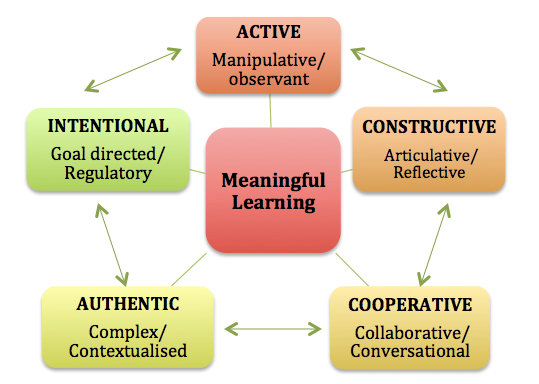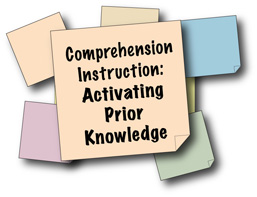Teaching Philosophy
I have been teaching in some capacity for my entire journey in higher education. I am currently an Assistant Professor at Monmouth University where I teach the General Chemistry I and II course. Previously, I was an instructor of record and teaching assistant for several general, organic, and nursing chemistry classes and I have tutored countless students. These teaching experiences coupled with my educational research experience have shaped my understanding of how students learn and the essential components of good teaching. Also, I believe that passion for teaching and caring about the success of students is another element of good teaching.
Meaningful Learning
Through various courses on evidence-based educational research, I have come to subscribe to the idea that students learn through constructing knowledge rather than passively absorbing information. This construction involves developing connections between prior knowledge and new knowledge. Also, to an equal extent, student learning involves the student’s attitude towards learning and their ability to physically interact with the concepts they are learning^1. I believe good teaching is not solely connecting concepts for students instead; good teachers create dynamic material to facilitate knowledge construction in students while being a motivating force.
Prior knowledge informs intentional design
Students’ prior knowledge can affect how they learn or receive new information. My first step when teaching involves gathering information on students’ prior knowledge. Gathering this information allows me to dispel common misconceptions that could inhibit understanding of future topics. Also, this information, usually collected through surveys, then guides how I present concepts and design course materials.
Collaboration
I also strive to teach through collaborative learning. Researchers report that, regardless of the subject matter, students working in small groups tend to learn more of what is taught and retain it longer than when the same content is presented in other instructional formats. Also, students are generally more satisfied with their classes^3. I include group assignments, activities and discussions in my classes to encourage students to share ideas and work together to come up with answers on their own. Also, I intentionally pair strong and weak students together in class to give stronger students a chance to teach and weaker students a personal tutor
Motivation: Nurturing Growth mindsets
Presentation of content is not the only challenge in the classroom. The teaching of chemistry is also difficult because many students approach the subject with a fixed mindset. Education research has described two types of mindsets students employ when learning: 1) fixed mindset and 2) growth mindset.4 Therefore, one of my goals as a teacher is to help my students overcome the belief that their intelligence is a fixed trait. On the first day of class, I convey to students that the mastery of any subject requires practice and diligence. As students, they have already mastered something: be it dance, martial arts or playing an instrument. I point out that these pursuits did not come by some innate trait or by reading a Wikipedia page on the matter. In the same manner, it is my goal for students to understand that the mastery of chemistry will only come with persistence, hard work, and practice.
Authetic Lab Exeriences
Mental practice of chemistry problems is equally as important as the physical exploration of the science. I believe that traditional "cookbook" labs are the least effective way to teach chemistry to students. Chemistry by nature is an exploratory science; therefore labs should be designed in a way to maximize this essential component to student understanding. Part of my Ph.D. work has been on reporting the design of a guided-inquiry project based lab and the experiences students have in this type of laboratory environment. That is why I believe that labs are essential to chemistry and the way that labs are carried out and designed is crucial to furthering the knowledge learned in lecture.
Teaching and learning does not only occur inside of the classroom. Mentoring undergraduates in the research laboratory is also valuable. As a graduate student, I mentored several undergraduates. I enjoy working side by side with the students in developing their research skills, good scientific habits and critical thinking skills. Chloe Mitchell, one of the undergraduate students I mentored, was a co-author on the recently published article in the Journal of Chemical Education and currently she is excelling at Mercer University’s School of Medicine.
I continue to develop myself as a teacher with workshops in pedagogy and innovative teaching, teaching conferences and seminars. Someone once said,
"Those who think all you have to do to be a good teacher is love to teach, have to believe that all you have to do to be a good surgeon is to love to cut.”
I believe that the love of teaching is a necessary, but not sufficient requirement to becoming an effective teacher.
In summary, I believe that the best student learning environments are produced when research-based education practices are combined with a passionate, enthusiastic instructor who assesses success through student success. As an educator, I am committed to improving and adjusting my teaching style and evaluation methods for the best student outcomes.




